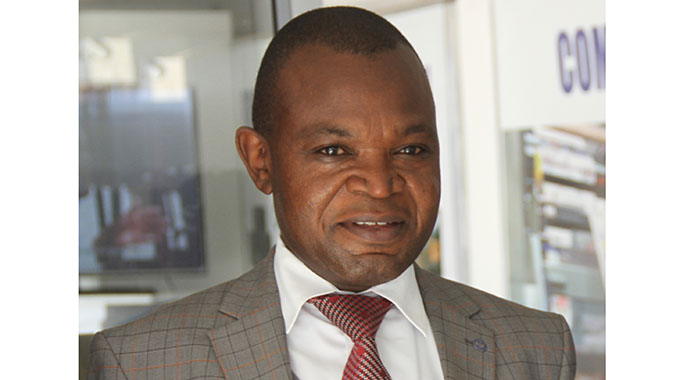Editorial Comment: Tough choices needed to keep Covid-19 at bay

With Midlands Provincial Affairs Minister Larry Mavima — who also chairs the provincial Covid-19 Taskforce — in self-isolation after testing positive, this shows that the virus is alive in Zimbabwe and we relax our guard at our own peril.
Zimbabwe has seen very low infection rates and few deaths in recent weeks, not because Covid-19 has disappeared, but because most of us accept that we need to follow a few simple rules to minimise our risk of infection and minimise the risk of us infecting others.
And even so these rules just minimise, not eliminate, the risks as the Minister’s case shows. Presumably Minister Mavima was more particular than most in following the rules, and yet he tested positive although fortunately, so far, with very minor symptoms.
The case comes at a time when most people had thrown caution to the wind on the assumption that Covid-19 was now a thing of the past and no longer virulent. It has killed 1,2 million people around the world and confirmed and tested infections will soon reach 50 million, with many tens of millions more having been infected, but never tested.
Everyone must appreciate that the disease is real and there is still need to observe safety precautions recommended by the World Health Organisation (WHO).
These are simple: consistent and proper use of face masks in public, maintaining social distancing, avoiding large gatherings, sanitising hands and the like.
They have worked in Zimbabwe allowing us to open our economy without killing significant numbers, but we can only continue doing this if we keep up our guard, all of us.
From the time the first Covid-19 case was reported in China last year, the pandemic has upended the world. It has left everyone scared and many bereaved. It has damaged economies, weakened health systems, and scuttled progress.
It is because of its consequential effects that the virus has to be kept at bay. Complacency is rising among Zimbabweans many of whom have stopped adhering to WHO safety precautions and prescribed national safety rules and regulations.
From the time the first case of coronavirus hit Zimbabwe in March, resulting in President Mnangagwa announcing an initial 21-day lockdown, some people have thrown caution to the wind.
Long winding queues of people in crowded areas, bars operating on full throttle from the back door, and churches that are now holding services for more than the stipulated 100 congregants have disturbingly become common.
The sight of hordes of pedestrians and motorists going about their business without wearing masks nor observing social distancing, paint a sad story of a nation that has long dismissed coronavirus as a fallacy despite its ravaging effects.
Even checkpoints manned by seemingly overwhelmed security personnel have somewhat relaxed. Add the spiralling figures to the people’s attitude, you have a picture of an eccentric nation that now believes that Covid-19 is no longer a threat.
Yet the numbers who still adhere to rules, and a stroll through our streets shows them up, plus most shops insisting that customers are masked is possibly limiting what must be a surge in infection.
Unsanctioned musical shows, drinking binges and huge gatherings at funerals and other public events point to shocking levels of complacency and disregard of lockdown regulations.
Many people have stopped using sanitisers, while others no longer wear masks in public places, which are usually crowded.
Generally, people have become comfortable and, often inadvertently, easing their protective measures, lowering their facial covering, and have been lulled into a false sense of security, at a time the whole world is gripped with fear following an upsurge in new cases.
The lackadaisical approach the nation is taking will cost us in the long run. Countries like the US already are counting losses owing to complacency amid indications that country is already under siege from new infections.
Last Friday, the United States recorded over 99 000 coronavirus cases in a single day, a level reached for the first time since the pandemic began.
Early this week, Britain announced a second national lockdown to prevent what it termed a “medical and moral disaster”, while others countries in the same predicament have since followed suit. Borders to a lot of countries remain closed, amid a worry breakneck speed of new coronavirus infections, with the Africa Centres for Disease Control and Prevention, saying there is six percent average increase in new cases in Africa alone.
The nation now needs to be more vigilant than before and heighten its guard against the further spread of coronavirus. With schools expected to be fully operational next week, there will be a lot of movement and interactions between parents and pupils, a development that requires discipline and compliance with the Covid-19 safety measures.
We know what to do. We know what works. Now we just need to do it, however irksome, many of us find this.
Police and other law enforcement agents should continue to arrest individuals, organisations and businesses found to be flouting the existing Covid-19 regulations. In situations like these, tough decisions would need to be made.
As a country, we have been more fortunate than some of our neighbours like South Africa, with regards to the recorded positive cases of Covid-19. However, that does not mean that we need to throw down our gauntlet against the virus, but we need to be more vigilant than before because Covid-19 is still within our communities.
Government might need to revoke public gatherings by reducing the figures to the initial 50 as part of its long term efforts in its fight against the spread of Covid-19.
While the pandemic is primarily a health crisis and a human tragedy, it also has far-reaching economic ramifications, hence the need to keep it under control so we can continue to earn our livings. Lockdowns and curfews could be eased because most people obeyed the rules. The day we stop, back we go.
Already it has disrupted thousands of people’s livelihoods, with disproportionate impact on poor households and small and informal businesses, which are now struggling to take off following months of lockdown.
The socioeconomic impacts of this pandemic will be deep and long-lasting, and swift and coordinated action is needed to reduce transmission and protect against the broader impacts of the virus.
The country cannot afford another wave of Covid-19 infections.
The costs are too ghastly to contemplate, hence the need for concerted efforts and save the nation from further damage.










Comments